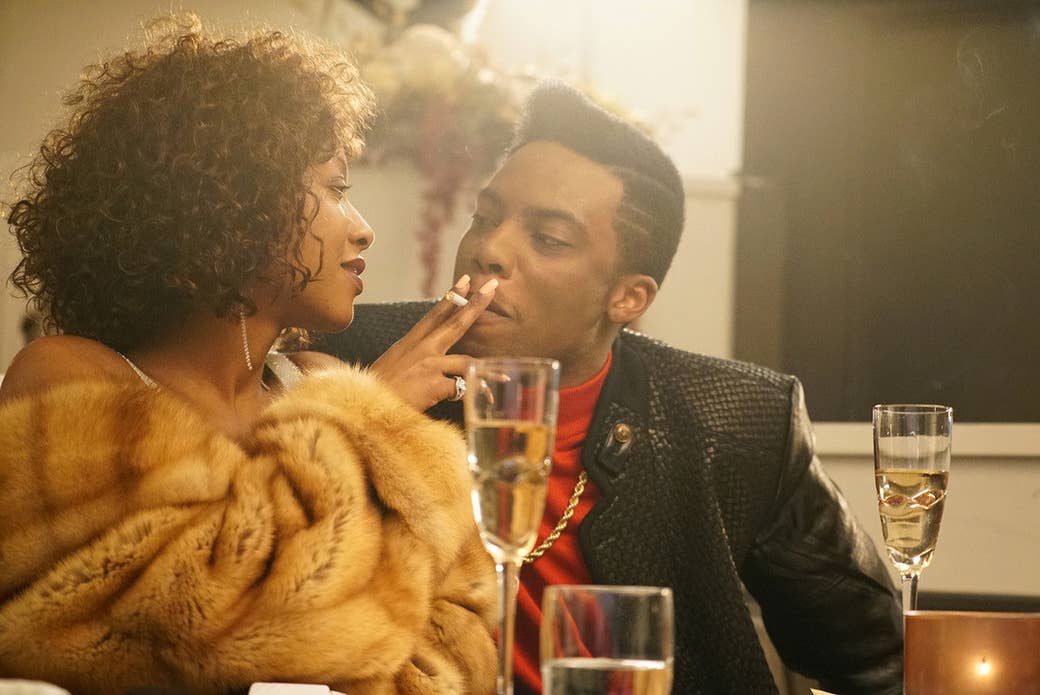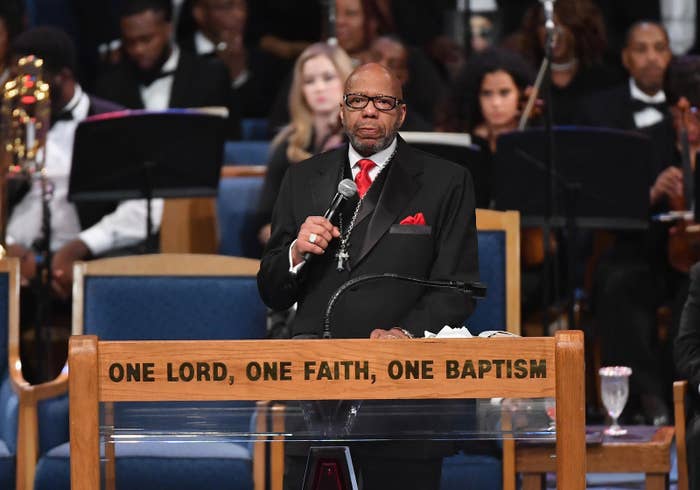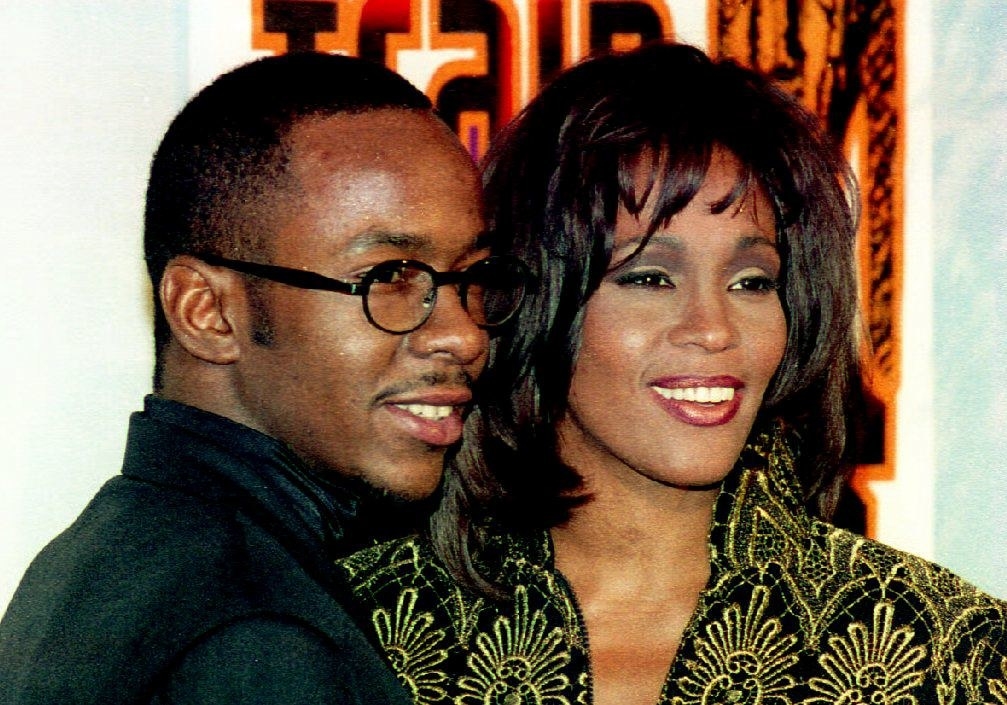
Not long ago, I strutted into a TGI Friday’s for a late Sunday lunch meeting. Game face on, hoop earrings gleaming, makeup freshly applied, I approached the table where my 8-year-old daughter sat chatting with her father and his fiancé. Since this was the first time we’d all be meeting together, the very first time my daughter’s soon-to-be stepmother and I would have the chance to really talk, I hoped my carefully curated aesthetic was landing as intended. I’d dressed for the story I wanted to tell about myself: I am a competent, caring, and receptive member of this family, and I’m completely confident in my role here, even as this family’s dynamics are evolving. But I felt nervous, guarded, and dangerously close to defensive. The truth was: I didn’t know what this woman had heard about me. I worried about what my daughter’s dad might’ve told her, and I was uncertain about whether or not that worry was unfounded. When you’re a character in someone else’s narrative, you’re vulnerable to their interpretation. This can be especially unsettling as a woman and a mother whose story has been left to a man to tell.
I had flashbacks to the Friday’s moment while watching The Bobby Brown Story, BET’s two-part miniseries, which aired this week, about the ’90s R&B star once known as the Bad Boy of R&B. Based closely on Brown’s 2016 memoir, Every Little Step: My Story, the biopic was very obviously designed to rehabilitate the singer’s public image. Several lines in the film stated this directly. When Brown’s brother and then-manager Tommy suggests taping a reality show, Tommy (Mekhi Phifer) huffs, “I’m getting real sick and tired of you being portrayed as this evil person.” According to the film, Brown’s public perception, especially after his marriage to pop diva Whitney Houston, is one of his sorest spots. “No one thinks I deserve her,” he laments on his wedding day. Much later, in a bridge-burning showdown with Houston, Brown spits, “Everybody started hating Bobby Brown as soon as I got with you.”
Brown’s memoir, his eventually produced Bravo reality show, 2005’s Being Bobby Brown, and this most recent biopic have all been attempts to “tell his side” of the story. None of the three is particularly kind to Houston. In The Bobby Brown Story, Brown’s portrayal of Houston, even in the earliest stages of their courtship, is unsympathetic. He comes across as reluctant to call what they’re doing “dating,” and three years later, he’s ambivalent about proposing to her. She’s ultimately painted as a horrible mother who actively kept Brown away from their daughter, Bobbi Kristina, for years at a time. When Houston’s death and, subsequently, their daughter’s death, are covered in the final 30 minutes of the series, they’re treated with sensitivity but also with jarring brevity compared to the amount of screentime spent on sex and orgy scenes and other life moments meant to signal that our sympathies should lie with Brown and no one else.
Throughout the film, the mothers of his other children flit in and out of scenes, cast alternately as hangers-on, jealous about his newer romantic liaisons, or late-night door-openers, offering him respite from Houston’s haranguing.
As a personal storyteller, I’ve always found it difficult to determine how other people in my life should be portrayed. Most memoirists and personal essayists struggle with this, the reliability of our own memories and emotions being in frequent flux. Our truths are experienced and perceived differently by other participants and observers. Brown should be afforded the opportunity to tell his truth. But it’s hard not to critique his approach when the woman who comes off worst in his retelling is no longer here to contest his account. It’s disheartening to realize that women who spent their lives protecting the reputations of men could have their own legacies so mishandled by them — especially when so much evidence of these women’s own self-examination exists.

The Bobby Brown Story marked the second time in the span of a week that a man used a public platform to denigrate a deceased woman superstar. In the final hour of soul icon Aretha Franklin’s televised and livestreamed funeral last Friday, eulogist Rev. Jasper Williams Jr. took to the pulpit and delivered a message that seemed to take direct aim at how Franklin was raised and how she lived her adult life.
About 15 minutes into the message, Williams poses the question, “How can we walk out of this room today and say that it is Aretha’s life, it is Aretha’s legacy, that has brought real, true change in our world today?” He then makes a rhetorical leap from the origins of Franklin’s title, “the Queen of Soul,” to an accusation that “Black America has lost its soul.” Thus begins an additional 30-minute diatribe that largely uses Franklin’s life as a prop by which to indict the black community. Williams swings wildly between “black-on-black crime” to “broken homes,” presenting Franklin’s own upbringing as a child of divorce as proof of some sort of moral failure.
“I’m not saying that Rev. [C.L.] Franklin exercised the best parenting skills, because he certainly did not,” Williams intones. “Something in the home had to be wrong. There had to be some kind of deficit. We can tell it was a deficit because of the way the queen sang. ... We could feel the pain. We could feel the hurt.” At the fever pitch of this strange line of reasoning, Williams adds an odd metaphor. “The womb is to the child before birth what the home is to be to the child after birth,” he claims, before referring to children from divorced or one-parent households as having experienced “abortion after birth.”
It’s disheartening to realize that women who spent their lives protecting the reputations of men could have their own legacies so mishandled by them.
In the end, discussion of Franklin’s impact on national and international culture, her successes as a devoted mother, grandmother, and aunt, and her often anonymous, lifelong contributions to social justice initiatives was minimal. Williams shunned telling those stories in order to amplify the fact that her parents split in early childhood, to make some tenuous link between that and Franklin’s own personal relationships as an adult (and her intermittent experiences as a single mother), and to minimize the 76-year-old superstar’s accomplishments in favor of reductive gender roles and respectability politics.
Franklin’s family has since released a statement renouncing the eulogy, calling the reverend’s comments “offensive and distasteful.” Their statement, which Franklin’s nephew Vaughn Franklin penned, went on to assert, “My aunt did not ask Rev. Jasper Williams Jr. to eulogize her before she passed away because dying is a topic that she never discussed with anyone.” The reverend stated otherwise in a press conference.
Unfortunately, so many black women have held their tongues in order to protect the men around them. Williams was reportedly chosen because he’d also eulogized Franklin’s father, whose reputation was peppered with rumored experiences far more scandalous than a divorce. But Franklin herself remained devoutly protective of her father in public commentary; whatever she knew about his personal life, which allegedly included extramarital affairs, drug use, and fathering an underage parishioner’s child, she kept to herself.
In a 1999 NPR interview, Franklin demurs when Terry Gross asks how her father felt about women hitting on him at his church: “I have no idea. I never discussed it with him, and he never discussed that sort of thing with his children.” Franklin knew much more about her father’s private life than she’s letting on. His alleged exploits have been well documented, and famously so in the David Ritz biography of Franklin’s life, Respect: The Life of Aretha Franklin, but her instinct to protect her family’s reputation shows that their privacy — and hers — were essential for her to safeguard. It’s a shame that the reverend selected to eulogize her couldn’t honor that.
Whitney Houston was similarly protective of Bobby Brown’s reputation, at least in interviews conducted during their marriage. In a 1999 interview with Redbook, she defended him against negative coverage:
Contrary to belief, I do the hitting, he doesn’t. He has never put his hands on me. He wasn’t raised that way. He is not a woman-beater, and I wish they would stop saying that about him. That’s madness. When he first read that, he was devastated to think he was being portrayed that low — as a man who would lay his hands on a woman.
She further advocated:
What was written — about what I did, what he did — wasn’t always true. Bobby is a party guy. He likes to go out and he likes to hang with his friends. He likes to dance with different people. When people saw him without me doing that, they figured, “Oh, he’s out cheating.” Now I’m a smart girl, okay? I follow up. I have checked my husband out and he was nothing like they say he was — nothing. I checked him out when he wasn’t even looking, so I can say that truthfully.
Houston also made a point of publicly owning her own destructive behavior in interviews, perhaps most memorably in her 2002 sit-down with Diane Sawyer (for which Brown was present) and her 2009 post-divorce interview with Oprah Winfrey. With both women, she was somewhat candid about her drug use and its impact on her own career and family life.

Yet Houston and Franklin are not the only examples of this protective impulse among black women. When the singer Kelis revealed in an April interview that Nas had been physically abusive, she sat on these allegations for nine years, in part because she didn’t want their children to know: “I’ve waited nine years to say anything. I have never talked about this man. The amount of airing out that I could do and don’t do is what our kids will find out.” Similarly, music producer Drew Dixon said that she was initially reluctant to report the allegations against mogul Russell Simmons for fear of perpetuating a stereotype that all black men are violent. Supermodel Beverly Johnson also cited this as a concern in her 2014 Vanity Fair op-ed about her abusive encounter with Bill Cosby. “As I thought of going public … a voice in my head kept whispering, ‘Black men have enough enemies out there already, they certainly don’t need someone like you, an African American with a familiar face and a famous name, fanning the flames,’” she wrote.
Though these examples are much more serious than the spats Houston and Brown were known for, they suggest that for all too many black women, protecting the reputations of black men is an instinctive impulse. And black men are often not willing to do the same. For all women, it’s important to control our own narratives and tell our own truths as often as possible while we still can. That way, our own account of our lives will serve as an accessible refutation to any lies told in our names.
About one hour into my lunch with my daughter’s growing family, her father’s fiancé asked if we could talk alone. My daughter and her dad took a walk. Once alone, we started to tell each other the truths we’d never had an opportunity to share. I learned more about her relationship with my daughter and she learned more about mine. The candor was, at turns, a bit uncomfortable for me. I didn’t know if my own account of past events was being compared to others she may have heard. But I walked away from the table feeling relieved that she’d finally heard about me from me. It’s the only version of my story — as a woman and a mother — that I can control. I’m grateful to still be around to tell it. ●
